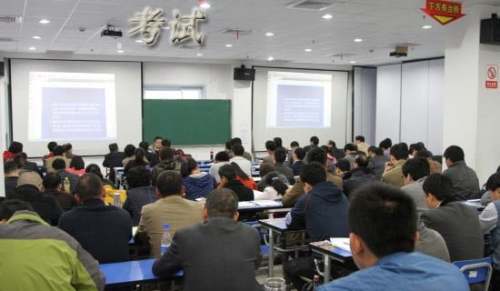- 相关推荐
2014年6月英语六级考试听力真题
2014年6月英语六级听力真题长对话部分

M: It's really amazing how many colors there are in these Thai silks?
W: These are our new designs。
M: Oh, I don't think I've seen this combination of colors before。
W: They're really brilliant, aren't they?
M: Quite dazzling! May I have samples of the new color combinations?
W: Yes, of course. But aren't you going to place an order?
M: We order them regularly, you know, but I do want our buyer who handles fabrics to see them。
W: Have you looked at the wood and stone coverings? Did you like them?
M: Oh, they aren't really what I'm looking for。
W: What do you have in mind?
M: That's the trouble. I never know exactly until I see it. I usually have more luck when I get away from the tourist places。
W: Out in the countryside you mean。
M: Yeah, exactly. Markets seem small towns have turned out best for me。
W: You're more interested than in handcrafts that haven't been commercialized。
M: Yes, real folk arts, pots, dishes, basket ware — the kinds of things that people themselves use。
W: I'm sure we can arrange a trip out into the country for you。
M: I was hoping you'd say that。
W: We can drive out of Bangkok and stop whenever you see something that interests you。
M: That would be wonderful! How soon could we leave?
W: I can't get away tomorrow. But I think I can get a car for the day after。
M: And would we have to come back the same day?
W: No, I think I'll be able to keep the car for three or four days。
M: Wonderful! That'll give me time for a real look around。
9. What attracts the man to the Thai silks?
10. What is the man looking for in Thailand?
11. What do we learn about the trip the woman promised to arrange for the man?
2014年6月英语六级听力真题复合式听写部分原文
Section C Dictation
The first copy right law in the United States was passed by congress in 1790. In 1976, congress enacted the latest copy right law, taking into consideration the technological developments that had occurred since the passage of the copy right act of 1909. For example, in 1909 anyone who wanted to make a single copy of a literary work for personal use had to do so by hand. The very process imposed a limitation on the quantity of materials copied. Today, a photo copier can do the work in seconds. The limitation has disappeared. The 1909 Law did not provide full protection for films and sound recordings nor did it anticipate the need to protect radio and television. As a result, violations of the law and abuses of the intent of the law have lessened the financial rewards of authors, artists and producers. The 1976 copy right act has not prevented these abuses fully, but it has clarified the legal rights of the injured parties and given them an avenue for remedy. Since 1976 the act has been amended to include computer software and guidelines have been adopted for fair use of television broadcasts. These changes have cleared up much of the confusion and conflict that followed in the wake of 1976 legislation. The fine points of the law are decided by the courts and by acceptable common practice overtime. As these decisions and agreements are made, we modify our behavior accordingly. For now, we need to interpret the law and its guidelines as accurately as we can and to act in a fair manner。
【6月英语六级考试听力真题】相关文章:
英语六级听力考试真题07-29
英语六级考试真题听力09-19
英语六级听力真题10-11
英语六级真题听力07-12
雅思听力考试的真题及答案09-29
2017年英语六级听力考试真题辅导10-02
英语六级听力真题答案06-14
英语六级听力真题资料07-25
英语六级真题听力技巧10-15
近年英语六级听力真题09-06